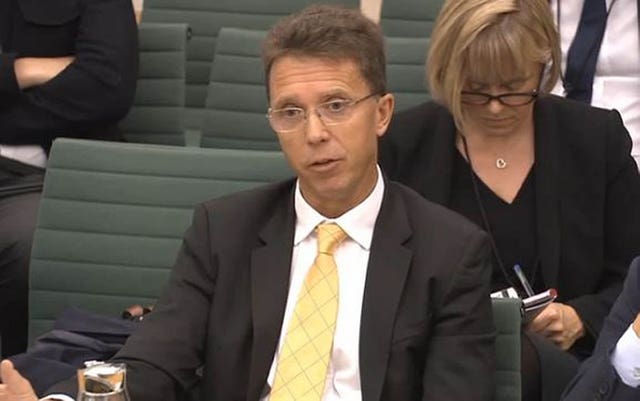Swift Rate Cut May Be Needed Amid ‘Sluggish’ Growth, Warns Bank Policymaker
Britain risks facing “sluggish” growth for the next year or two and interest rates would need to be cut swiftly if action is needed, a Bank of England policymaker has warned.
Monetary Policy Committee (MPC) member Michael Saunders – one of two policymakers who voted to cut rates from 0.75% to 0.5% at the last two meetings – said he believed weakness in the economy and signs that the jobs market is faltering support the need for action.
In a speech in Bangor, Northern Ireland, he stressed the threat of a “low inflation trap” was very real – comments which came as official figures showed inflation falling to a three-year low of 1.3% in December.
His comments add to growing speculation that the Bank could look to cut rates, potentially as soon as this month’s meeting, if economic data does not improve.
Mr Saunders said: “Economic growth is sluggish, spare capacity is rising, while inflation is subdued.
“The economy still has a slow puncture and this seems to be spreading to the labour market.”

He added that “risks for the next year or two are on the side of a more protracted period of sluggish growth” than previously predicted by the Bank.
“If easing is needed, it should occur promptly,” he said.
His comments echo those made in a speech last week by outgoing Bank Governor Mark Carney, who said policymakers are weighing up the need to lower rates and that, if growth does not pick up as expected, a “relatively prompt response” would be needed.
There appears to be growing support for a cut among the MPC, after member Gertjan Vlieghe said at the weekend that he would be prepared to lower rates if data did not show an improvement in growth.
Another member, Silvana Tenreyo, also recently spoke about the prospect of voting to lower the Bank’s central rate.
Mr Saunders said he had still not made up his mind how he will vote in the forthcoming meeting of the nine-strong MPC on January 30.
But the latest official data on Monday would have done little to reassure the MPC, with gross domestic product falling by a worse-than-feared 0.3% month on month in November as Brexit uncertainty continues to hamper growth.
There are also concerns among MPC members that, as rates are already so low, they may need to take action quickly to boost growth and head off a deflationary cycle to avoid the need for greater monetary policy support later on.
Mr Saunders said: “You just have to look across other major advanced economies to appreciate that the risk of being stuck in a low inflation trap, with a self-reinforcing circle of caution, sluggish growth and depressed inflation expectations, is not just a theoretical possibility.”




